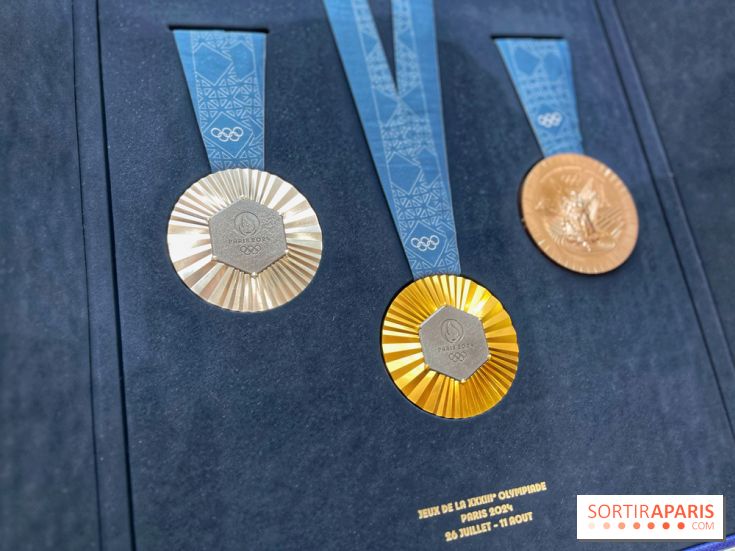While the Paris 2024 Olympic Games will be held in France from July 26 to August 11, the 14 rowing events will take place, meanwhile, from July 27 to August 3, 2024. The events, which are the same for women as for men, are as follows: single sculls, double sculls, double sculls, coxless quadruple sculls, quadruple sculls, single sc ulls and lightweight double sculls.
All will take place at the Vaires-sur-Marne nautical stadium, a complex due to open in 2019 in Seine-et-Marne. While you're waiting to see these exciting competitions on the water, (re)discover thehistory of rowing, learn the rules of this water sport and recall the memorable records and great sporting moments in the history ofrowing.
Rowing has its roots in maritime traditions, with rowers competing on Europe's waterways in the late 17th century. The rise of rowing as a sport is often attributed to England, where rowing boat races were popular from the early 18th century. In 1829, the first official rowing race between university teams, between Oxford and Cambridge, marked the beginning of the rivalry between these institutions, later evolving into the famous regatta The Boat Race.
The rowing craze then spread to North America, with the creation of clubs and competitive organizations. In 1852, the first amateur rowing championships were held in the United States. Rowing became an Olympic sport at the Athens Games in 1896, with men's events only. It wasn't until 1976 that women joined the competition, at the Montreal Games.
Since then, rowing has continued to evolve, integrating different boat categories and expanding its international reach, becoming one of the world's most prestigious water sports.
Rowing races take place over a distance of 2,000 meters, using a variety of boats, fromsingle boats (skiffs) to crew boats with 2, 4 or 8 rowers. While rowing consists in all cases of a boat propelled by the power of oars attached to the boat, there are two disciplines: single-handed rowing, with the rower handling a single oar with both hands; and sculling, with the rower handling an oar in each hand.
At the start of the race, the boats are lined up side by side. The originality of rowing lies in the fact that athletes position themselves with their backs to the finish line and row in the opposite direction of the race to minimize the effect of current or wind. Coordination and synchronization between rowers are crucial!
Boats with 8 rowers require a coxswain, who is responsible for steering and race strategy. However, some categories are coxless, and rowers must steer the boat themselves. When a boat gets ahead, it must avoid hindering other competitors by staying in its assigned lane. Penalties may be imposed for infractions such as interference, false maneuvers or unsportsmanlike behavior.
Victory is determined by the first boat to cross the finish line. Races can be extremely close, and the photo-finish is sometimes necessary to break the tie!
While the USA has long dominated the discipline at the Olympic Games, the USSR and Germany have subsequently vied for the top spots in the rankings.
Yet the title of greatest rower in history belongs to an English athlete, Sir Steve Redgrave, with no fewer than five gold medals from five editions of the Olympic Games. In the women's event, Romanian Elisabeta Oleniuc-Lipă won the most titles, with five Olympic titles, two silver and one bronze.
A total of 502 rowers are expected to compete in the seven Olympic boat classes at the Paris 2024 Games. France has already qualified three hulls (two men's and women's sculls and four men's coxless) for the Worlds in Belgrade in September 2023. The next qualifying round will take place in May 2024, at the final Olympic qualifying regatta in Lucerne, Switzerland.
Saturday, July 27
Sunday, July 28
Monday, July 29
Tuesday, July 30
Wednesday, July 31
Thursday, August 1
Friday, August 2nd
Saturday, August 3rd
Paris 2024 Olympics: what time & channel to watch the rowing events on TV?
Not sure what time and channel to watch your favourite sport? Here's the broadcast schedule for the Olympics, the channels and times to watch the various rowing events! [Read more]
Location
Nautical stadium Vaires-sur-Marne
undefined Rue de Torcy
77360 Vaires sur Marne







 Paris 2024 Olympics: what time & channel to watch the rowing events on TV?
Paris 2024 Olympics: what time & channel to watch the rowing events on TV?














